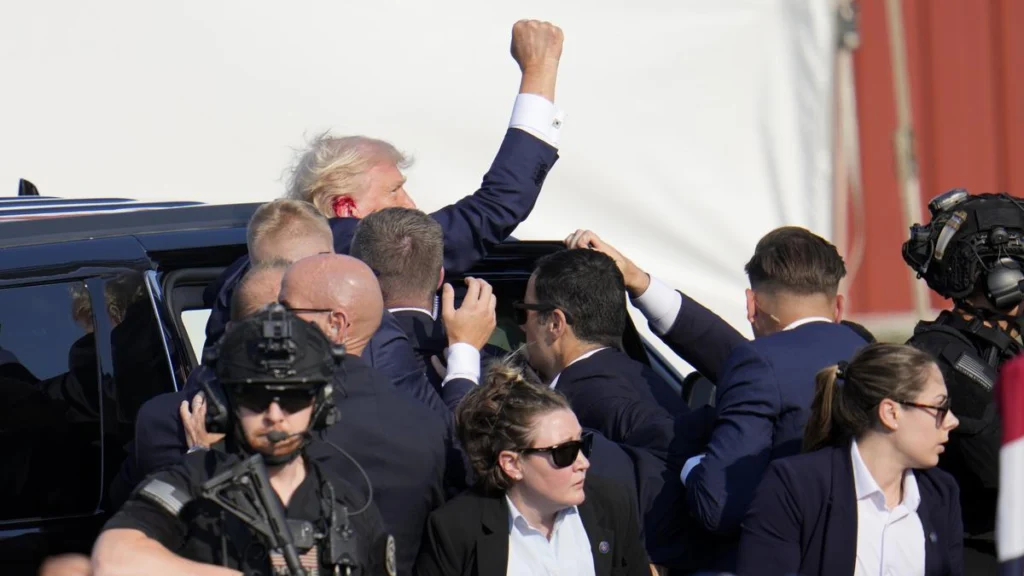Trump assassination attempt: Senate report blames ‘inexcusable’ security failures, calls for more disciplinary action

A Senate report has revealed alarming security lapses during the assassination attempt on former U.S. President Donald Trump. The U.S. Senate Homeland Security and Governmental Affairs Committee’s report describes the failures as “inexcusable” and criticizes the consequences imposed so far. The committee says these consequences don’t reflect the severity of the situation. The findings demand stronger disciplinary actions and significant reforms to prevent future breaches that could put national security at risk.
The details of the assassination attempt and the investigation highlight the effectiveness of the security measures protecting high-profile officials. Although the report criticizes specific actions taken by security personnel, it also discusses systemic issues within the U.S. Secret Service and federal agencies that handle national leader protection. The findings point to critical flaws in how security was managed, exposing vulnerabilities within the U.S. political system.
The Assassination Attempt: A Deeply Troubling Incident
The attempt on Trump’s life, which occurred during a public event in early 2025, initially seemed like an isolated act of violence. However, as the investigation progressed, it became clear that the incident was part of a larger pattern of security failures. A lone assailant managed to get dangerously close to the former president without triggering immediate action from the security team. The attacker, later confessing to having planned the assassination for months, bypassed multiple security layers, raising serious concerns about the effectiveness of the U.S. Secret Service.
The assailant, armed with weapons and tactical training, approached Trump under the guise of a protester, blending in with the crowd. The situation escalated quickly, leading to chaos. While Trump escaped unharmed, the emotional and psychological toll on the president and his security team was immense.
Senate Report: ‘Inexcusable’ Failures and Accountability Gaps
The Senate report, released after the investigation, sharply criticized the failures of the Secret Service and other agencies involved in Trump’s security. “What happened was inexcusable,” the report stated, noting that lapses allowed the assailant to approach the president. It found multiple ignored warning signs, including a lack of coordination between local law enforcement and federal agents. The report also highlighted the failure to follow established security protocols.
The Senate committee’s investigation revealed several key problems:
- Inadequate Risk Assessment: The security team did not properly assess the risk level of the event. Intelligence reports that flagged growing anti-government sentiment in certain communities went unheeded. Had these risks been addressed, authorities could have heightened security measures.
- Failure in Coordination: Local police forces and the U.S. Secret Service failed to coordinate effectively. The committee discovered that local authorities weren’t properly briefed on potential risks or protocols.
- Improper Communication: After the breach, communication among security personnel was slow and unorganized. The report stated that Secret Service agents did not respond quickly, which worsened the situation.
- Security Gaps: The Senate found that critical security features, like biometric screening, vehicle checkpoints, and perimeter fencing, were either ignored or improperly implemented. These gaps allowed the attacker to slip past several layers of security.
The Call for Disciplinary Action
The report calls for stronger disciplinary measures to address the security failures. While some personnel were reassigned, the committee stated that the response wasn’t enough. It argued that such failures deserve more significant consequences. “Failure to take appropriate action undermines the integrity of the security system,” the report said. The committee urged the Biden administration and the Secret Service to rethink how they hold personnel accountable.
The Senate also recommended a comprehensive review of the Secret Service’s operations. It suggested creating a new security framework with a focus on training agents for high-risk situations and improving response times. The committee also recommended setting up an independent oversight body to investigate security breaches and ensure proper actions are taken.
The Political and Public Reactions
The Senate’s findings have sparked strong reactions. Trump, although relieved to have survived the attack, expressed anger over the failures. “We can’t let this happen again,” he said. “The American people deserve better.”
Opposition leaders criticized the U.S. government for its handling of the situation. They saw the report as proof of systemic problems in national security. Some have called for an overhaul of the Secret Service. Others think Congress should play a larger role in overseeing the protection of government officials.
Some experts argue that the situation could have been worse had the assailant been better prepared. While the security failures were significant, they believe the eventual response prevented a much larger tragedy. The attack showed the vulnerabilities in the system but also highlighted the need for reform.
Rebuilding Trust and Strengthening Security
The assassination attempt has undermined public trust in the U.S. government’s ability to protect its leaders. The Secret Service, in particular, has faced criticism. Critics question how an attacker managed to approach the president so easily, with several security protocols failing.
The findings and recommendations from the Senate report present the government with an opportunity to make meaningful reforms. These changes could help rebuild public confidence in the security system. The government must act quickly to ensure that its leaders are protected. While the lessons learned from this incident are harsh, they provide an opportunity to strengthen the security measures for future presidential protection.
Conclusion
The assassination attempt on Donald Trump revealed serious flaws in the U.S. security apparatus. The Senate’s report holds the Secret Service accountable for its failures and calls for more robust disciplinary measures. The report also recommends comprehensive reforms to ensure better protection for U.S. officials. While the political fallout has been significant, the focus must now be on implementing reforms to prevent future security breaches. If the government fails to take immediate action, it risks repeating the mistakes that allowed this incident to happen.






